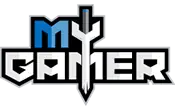Turba is a rhythm-based music game that’s programmed to move and groove along with the highs and lows in any song. That’s any and all songs from classical to country, from polkas to pop music. While other music-driven puzzle games such as Lumines and Audio Surf influenced Turba, game developer and creator Keith Morgado aims to give the player’s even more control over not only the background music, but the puzzle itself.
“I’m a big fan of puzzle games,” said Keith. “But games like Bejeweled, for example, don’t actually give you control over the puzzle. They only let you swap gems and then they automatically clear. So in my game you can actually select anything you want and clear whatever you want. So that’s what adds it to the rhythm, so you can clear it with the beat.”
Programming the blocks to move to the beat of the music took six months, Keith said. “While I was working on the game or course, there were very many iterations of it. Right at the beginning it worked terribly—I couldn’t play half the songs, but now it works pretty good.”
As an army of multi-colored blocks progresses down the screen, the player must re-arrange them in continuous groups of three or more and clear them. For every block that progresses past the edge of the screen, the player’s life bar is slowly whittled away. The player can clear the blocks whenever they want, but will receive extra bonus points if they clear the blocks along with the beat of the song.
Lucky for me, there was a fail-safe, beginner-friendly mode in the PAX East demo. Turba undoubtedly has a learning curve, but its seems appropriately challenging rather than daunting.
Being the Japan-ophile I am, I immediately clicked on the folder for the Japanese boy band Arashi. But because the song I was going for was had ID3 tags with symbols outside of the basic ASCII character set, Turba couldn’t register the song correctly. If the player has songs in Chinese, Japanese, Russian, Korean, etc., that they’d like to play, they have to Romanize the text in the ID3 tags and the song would play fine. I’m a nerd who’s comfortable with gobbledygook terms like ID3 and ASCII, but less computer-savvy gamers might have a little bit of footwork to do if they want to play some of their non-English language songs.
With J-pop out knocked out of my song options, I settled for Daft Punk’s “One More Time,” which was plenty fast.
The PAX demo of Turba used a mouse, and I quickly discovered I lacked quick-clicking precision I needed after years of using game controllers and my laptop trackpad. Keith said he ideally wants to make the game for a touch-based platform, such as the Android, iPhone or iPad (Turba actually began as an Android game).
The most difficult aspect of creating the game was determining what was legal to do with the game and the music on his own, Keith said. Figuring out how to avoid lawsuits and hefty licensing fees on his own was no easy task.
Turba is currently available at turbagame.com for demo (free) and download ($10), and supports multiple audio formats (MP3, FLAC, Ogg, Monkey's Audio, CD Audio, and Musepack). Look for our review of Turba version 1.1, a post-PAX East update, within the next few days.
President & CEO
















Leave a Reply